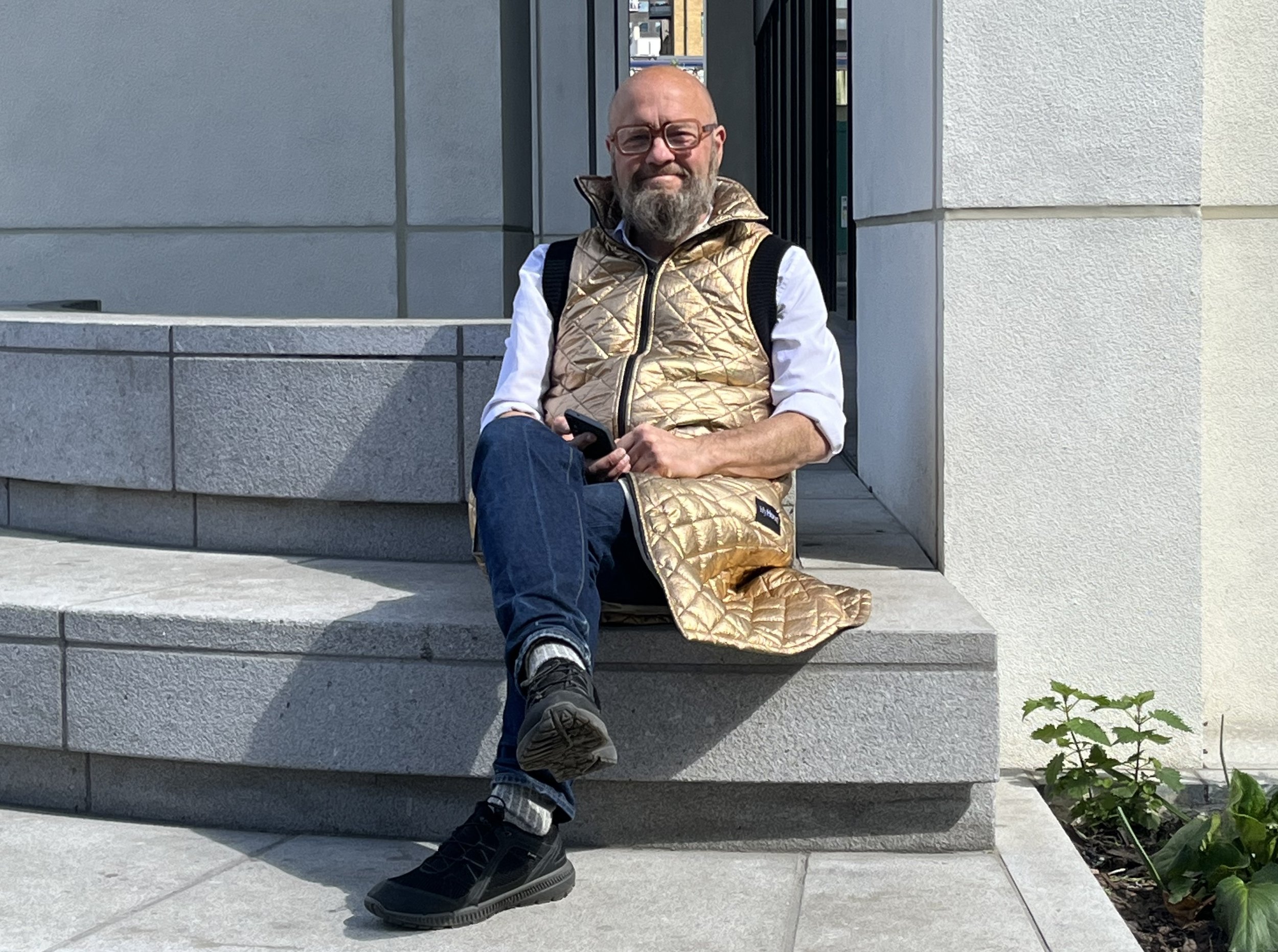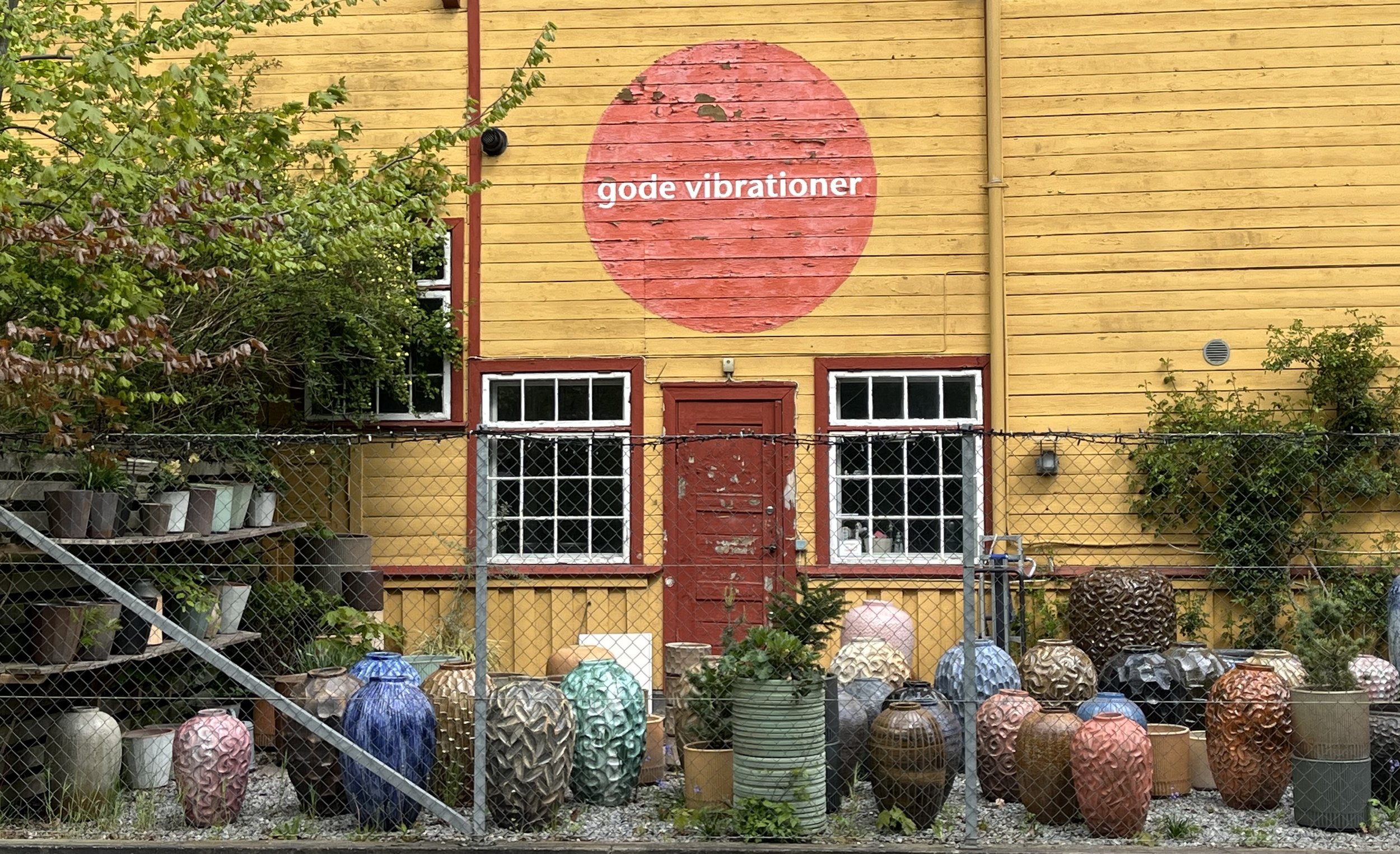Old friends from gymnasium meeting up at Roskilde, and then you realise that your proximity to royalty is really close.
Musical improvisation
““I told them an artist’s first responsibility was to himself. I said if he kept getting upset with what other people think he ought to do, he never would get too far, or he sure wouldn’t last. I tried to make them see how I had worked all my life to play myself… They said they understood. I hope they did.””
Setting the stage
How do you lead others who don’t share the same life experiences as you?
The challenge for leaders is to take everyone on the journey, not just those who are like them. My definition of leadership is when others choose to follow you in the absence of power, authority, or position, because they believe in you and the direction you want to take them. I think many people report to bosses, but not necessarily to leaders. Leaders may not hold formal power, but they have the influence to inspire and move people. As leaders, we must invest time in learning about the lived experiences of others.
Moving beyond words
It is important to consider that cultural norms and backgrounds, particularly among minorities in Denmark, often correlate with lower socio-economic status. I think that this should be factored into our considerations, as talent should never be restricted by a lack of opportunity. Many individuals from diverse backgrounds deserve to be further ahead in their careers. Talent must be given opportunities, and access must be provided for minorities and individuals from diverse cultural backgrounds.
A rude awakening
I have discovered something that’s both simple and radical: the biggest shifts in business don’t always come from data, strategy, or even a brilliant product. Often, they come from noticing what others overlook, from trusting your gut when logic reaches its limits, from asking not just “What’s the answer?” but “What am I missing?” I think beneath every decision, every brand, and every market lies one powerful, often hidden variable: human behaviour.
Look up
c/o Morten Vammen
If you promise to actively participate then I will promise not to waste your time. To quote William Shakespeare - "Something is rotten in the state of Denmark" - would be a disservice.
““Do well by doing better and do better by doing well.””
Driving performance
c/o HBR.org (PM Images/Getty Images)
Translating performance into metrics doesn’t always lead to the kind of breakthrough growth organisations are aiming for. There’s an important distinction between a performance culture and a growth culture. In many workplaces, performance culture is celebrated and often, it shows up as checklists, operational KPIs, and a strong focus on sticking to the plan. While that can drive consistency, it may also limit innovation and agility. I think in today’s rapidly changing world, what most organisations truly need is a growth culture, one that embraces change, encourages experimentation, and views adaptability not as a risk, but as a strength.
Do you care?
I think disappointment, though uncomfortable, can actually be a sign that someone cares, it means there’s an emotional investment. So, the real question becomes: What do I value, and what do I need to do to honour myself in this? Sadly, we are living in a time where many relationships feel transactional, but choosing to lead with presence and authenticity is how we bring meaning back into them.
In organisations and in life
There will always be those who seek truth and understanding, and those who fall into patterns of gossip or misinterpretation. Some choose to focus on ideas and long-term impact, while others are more preoccupied with personalities or power dynamics. We encounter both rational, thoughtful leaders and individuals who strive for influence in less constructive ways. I think recognising these contrasts is not a reason for cynicism, it’s an opportunity because the more aware we become of these dynamics, the more intentional we can be about the kind of leadership we model and cultivate. We get to choose what we amplify, and that choice shapes the culture around us.
It’s a business imperative
Creating a sense of belonging is no longer a “nice-to-have.” As I look to grow within a truly international organisation, I am particularly motivated to work alongside senior executives, where I believe I can drive the greatest impact. One of the emerging challenges for leaders today, especially in Denmark is building inclusive cultures that sustain high trust. Denmark’s society has long been rooted in shared history and cultural norms. However, with more than 600,000 residents now holding non-Danish passports, integrating diverse perspectives into the social and professional fabric is critical. I think how leaders respond to this shift will define the success and resilience of their organisations in the years ahead.
Facts on Friday
Romantic love is a relatively recent concept, only about 300 years old. Before the 1700s, marriage was not about love but about maintaining family lines, property, political affiliations, and class associations. Spouses were often chosen at birth, and individuals had little say in the matter. Marriages were negotiated by parents, the community, and extended families, as they recognised that marriage connected families, not just individuals.
Main Character Syndrome
I recently came across the term Main Character Syndrome (MCS), and it immediately caught my attention. At first, I laughed it off, thinking about those overly dramatic Instagram or TikTok videos where people romanticize their daily coffee runs or city walks as if they’re in a coming-of-age film. And the more I thought about it, the more I realised, we all have a little bit of MCS in us. It can show up in different ways: over-dramatising life events, narrating experiences in a cinematic way, or even seeing friends and colleagues as “supporting characters” rather than individuals with their own lives. I think if we are all the main characters in our own stories, let’s just make sure we’re not forgetting everyone else in the cast.
Take ownership
When we talk about who feels safe, we need to consider those most at risk of harm. Safety isn’t a privilege, it’s a right. Yet, time and time again, marginalised people are left out of the conversation. Where are the free speech advocates when it comes to calling out injustice? I remember a young woman who was sexually harassed at work by her boss. She felt powerless, unheard, but I couldn’t stay silent. I took action, spoke to the right people, stood by her, and made sure her voice was heard. I’m sure if this happened today, I would probably be cancelled. What do you think?
This too shall pass
Question.
Exchange views.
Speak your mind.
Do not be dictated to.
Do not tolerate injustice.
Do not tolerate ignorance.
Look for different viewpoints.
Keep your mind open to change.
““You will continue to suffer if you have an emotional reaction to everything that is said to you. True power is sitting back and observing things with logic. True power is restraint. If words control you that means everyone else can control you. Breathe and allow things to pass.””
The price we pay
Apparently free speech a privilege rather than a right, and free speech is only granted if we approve of what is being said. As non-white individuals living in Europe, many of us feel this conditionality firsthand. If we don’t stick to the script, expressing gratitude and happiness for simply being here, then we’re told to leave, to "go back to where we came from." This is what I mean when I speak about privilege and inequality. How would you behave if your immigration status depended on it?
““Your visions will become clear only when you can look into your own heart. Who looks outside, dreams; who looks inside, awakes.” ”
Sound familiar
Rum, often associated with the Caribbean, was actually created by enslaved Africans on sugar plantations who discovered how to ferment molasses into alcohol. It became a cornerstone of the economies during the transatlantic slave trade, fuelling a cycle of exploitation that enriched others while oppressing those who made it possible.
Ramadan Mubarak
I would like to extend my warmest wishes to everyone around the world who is celebrating the holy month of Ramadan.
Masculinity debate
My journey of healing and growth as a man isn’t bound by society’s narrow definitions of people who look like me, because those definitions have always been limiting. I was raised in a world that measures masculinity by culture’s rigid standards, where strength is defined by the ability to provide, protect, and procreate. When a man excels in these areas, he is granted power, and with power comes privilege. I think true masculinity, true strength, goes beyond these checkboxes, it lies in the courage to redefine ourselves on our own terms. Where displaying kindness and vulnerability should not be seen as weakness.
Tonight, the Brotherhood for Professionals of Color (BPoC) will have our long-awaited panel debate: “Redefining Masculinity: Pathways & Perspectives” at the Nordea HQ in Copenhagen.
Venus in Næstved
““Being a stereotype - gives you something to break.””
Venus Williams was in Næstved yesterday to promote her new book, “Strive: 8 Steps to Find Your Awesome” and my friend, Adama did an exceptional job as the moderator. Venus is kind and humble with a wonderful sense of humour. Many thanks to ProWoc (Professional Women of Colour) for the invitation.
Yes We Can
Barack Obama can be considered an outsider in multiple ways, depending on the context. Initially, he was a political outsider, but as the first Black president of the United States, his outsider status extended beyond politics. His "Yes We Can" slogan positioned him as a challenger to the status quo, yet once in office, he had to navigate and work within the very system he sought to change. Even after leaving office, he remains a transformative figure, continuing to challenge conventional thinking on issues of race, democracy, and global leadership.
Obama’s outsider status was both a strength and a challenge. It helped him mobilise new voters and inspire change, but it also made him a target for those resistant to shifts in power and identity. His presidency serves as a powerful example of how outsiders can redefine the system—if they can successfully navigate the resistance that comes with it.






















